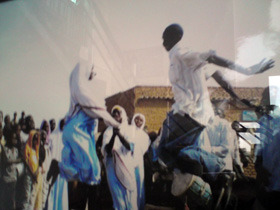
1 | Of laughter and teamwork – the A team and the Super team – and the competitive spirit that emerges when you try and interview close to 100 people in 8 days in 3 locations; from the floor of a lounge; to the meeting room at HQ; to the Ministers office; to a small office in Darfur.
2 | Of the people who work in this industry and whether there are stereotypes? For some its getting the sand between their toes and the dust in their hair, for others its the smell of the earth after the rain has fallen. Its the battling against all the elements and the unceasing struggle to help the population survive.
3 | Of the security which is insidious and necessary.
4 | Of being inside a UN bubble which puts a cloak (and a barrier) around all its workers such that they become both the solution and the problem.
5 | Of feeling much more comfortable in primitive conditions rather than the opulence which is the Burj el Fateh and feels so out of keeping with the rest of the environment.
6 | Of the ubiquitous donkey without whom this society would not survive.
7 | Of goats which were far more prevalent in Fashar than Nyala and obviously Khartoum.
8 | Of the many moving stories we’ve heard and the metaphors and images many of which only emerged after much gnashing of teeth, more kind of an abrupt halt, because it’s so long since these people, so busy getting things to happen, have had a chance back to stand back ad look at the larger picture.
9 | Of the need for silence in interviews and also of creating the right atmosphere and space to encourage discourse and finally.
10 | Of feeling overwhelmed by the magnitude of the Darfur crisis and unable to see a clear answer to these questions – the what next? What will the impact be when the aid providers actually departs? Who will pay the Doctors, Midwives, Hospital staff? Who will provide the maintenance, medicines and facilities without which all the billions already committed will be waited? Without infrastructure such as roads, rail and most importantly water production facilities the outlook for the Internally Displaced Persons (IDP’s) will be challenging.
